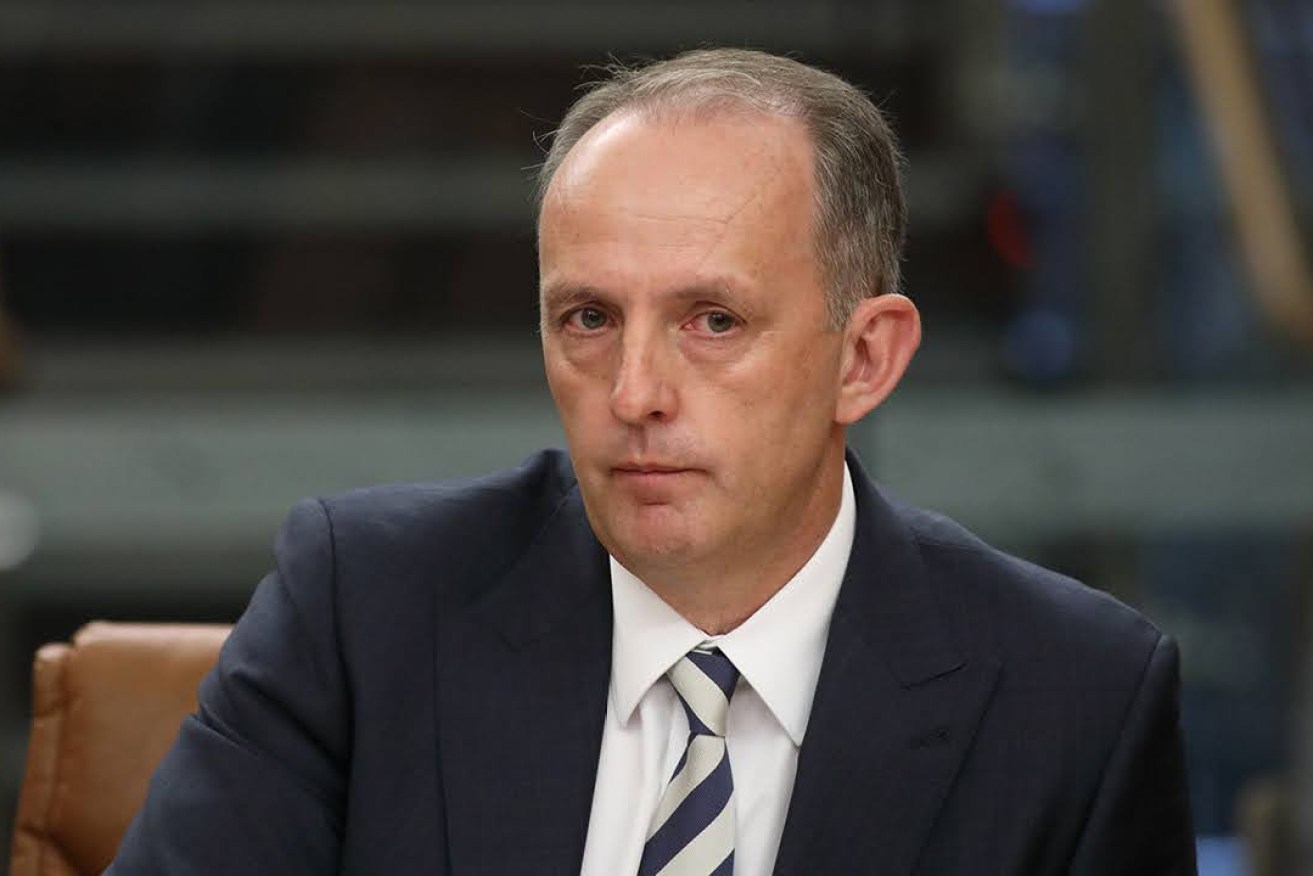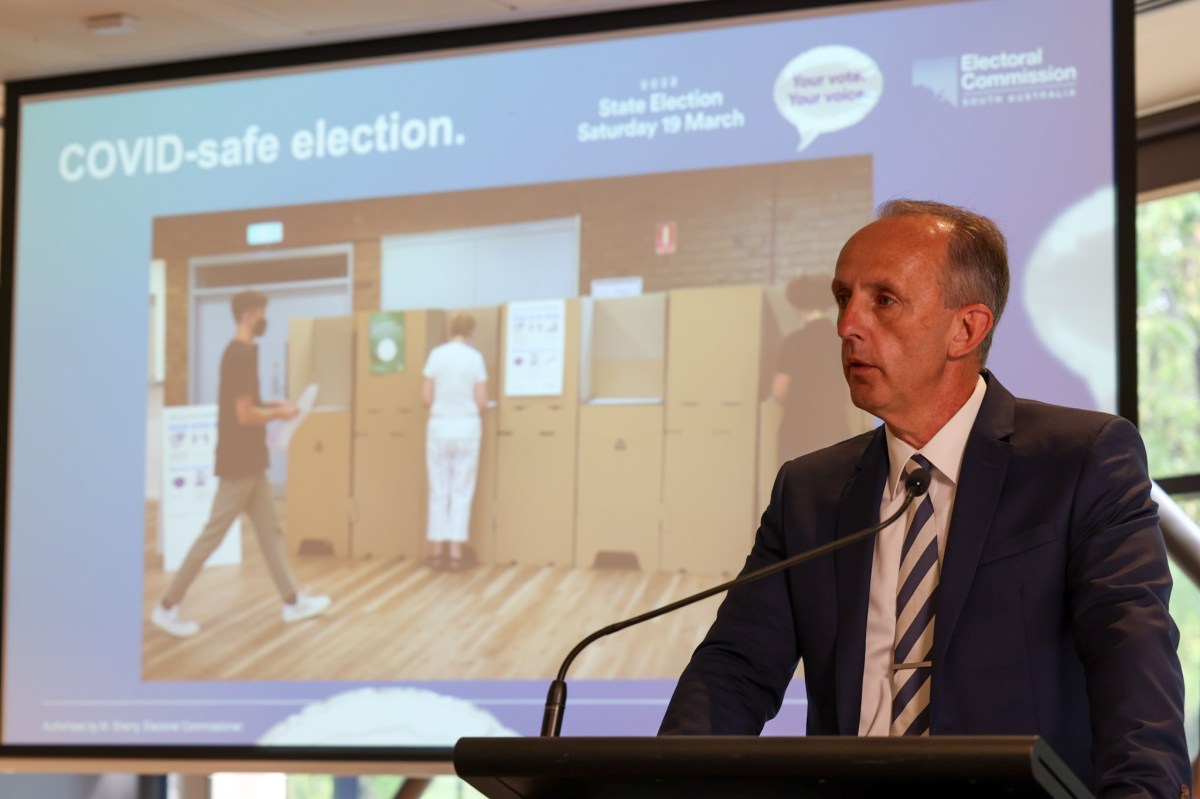SA electoral boss defends ‘ad hoc’ scrutiny of disputed council election
Four ballots that were rejected from Adelaide City Council’s controversial 2022 Central Ward election should have been counted, a court has heard, with the state’s electoral commissioner coming under fire for his handling of the disputed poll.


Electoral Commissioner Mick Sherry. Photo: Tony Lewis/InDaily
Electoral Commissioner Mick Sherry was cross examined in the Court of Disputed Returns on Wednesday about his oversight of the 2022 Adelaide City Council Central Ward election, which has been mired in controversy over an alleged voter scam targeting international students in four CBD apartment blocks.
The postal vote election was counted on November 12, 2022. At that time, the Electoral Commission rejected 23 ballots from Central Ward over suspicions these ballots were not returned by the residents whose names were attached to the voting slips.
Former city councillor Alex Hyde petitioned the court in December 2022 to declare the Central Ward election void, alleging “illegal practices” and “voter harvesting” contributed to his narrow loss to newly elected councillor Jing Li.
Li has consistently denied any wrongdoing and in his defence filed with the court labelled Hyde’s pleadings as “speculative and embarrassing”, The Advertiser reported.
The trial is being closely watched in Town Hall, where a declaration that the Central Ward election is void could force four incumbent councillors – Li along with David Elliott, Carmel Noon and Simon Hou – to stand for re-election.
Hyde, a Liberal Party member and city councillor from 2018 to 2022, told the court last week he is “undecided” on running again if the election is thrown out.
Hyde had raised concerns about the integrity of the election in late October 2022 – before polling day – prompting the Electoral Commission to launch an investigation into suspected “voting irregularities”.
Sherry told the court this week that his investigation “remains open and is still ongoing”.
He also confirmed the Electoral Commission has not yet been able to get in touch with 13 Central Ward voters – who had their ballots rejected – to check whether they voted or not.
Sherry said the Electoral Commission applied “additional scrutiny” during the election to 90 ballots that were returned from four apartment blocks – Realm, Vision, Kodo and Penny Place – which saw 23 votes rejected over the polling weekend.
Four of those electors, Sherry said, have subsequently told the Electoral Commission that they did actually vote in the election.
Todd Golding KC, representing the Electoral Commissioner, asked Sherry if “strictly speaking, if we had our time again, those four votes would have gone into the count – is that correct?” to which Sherry replied: “Correct.”
Two of the 23 rejected votes were thrown out for “other reasons”, the court heard, leaving 21 suspicious votes.
Of those 21 votes, six electors have told the Electoral Commission that they did not vote, Sherry said.
The Electoral Commissioner said there were 343 electors on Adelaide City Council’s supplementary roll from the four apartment buildings under investigation.
The supplementary roll is reserved for non-Australian citizens, as well as property and business owners who are eligible to vote in local government elections but not state or federal polls.
There were 90 ballots returned from the four apartment blocks in question. Sherry said “additional scrutiny” was applied to these ballots during the election process due to the allegations raised by Hyde in October.
“We decided to collate all ballots returned from four particular addresses and then make further enquiries to determine if the votes were valid or not,” he said.
“In order to do so, we approached the City of Adelaide, and for the 343 electors on the council supplementary roll, we asked for their enrolment forms.
“So additional scrutiny was focused on those 90 returned ballots, and in this case, we engaged council staff because it was a very resource-intensive exercise with all the other activities occurring at the same time.”

Electoral Commissioner Mick Sherry. Photo: Tony Lewis/InDaily
Sherry said council staff helped make phone calls to voters in the apartment buildings, but only four senior Electoral Commission staff were authorised to make the final call on accepting or rejecting votes.
Sherry conceded that the city council employees didn’t have any “particular training or experience” in the validation of signatures.
Later in the hearing, Sherry was cross-examined by Hyde’s counsel, Simon Ower KC, who questioned the Electoral Commissioner’s oversight of the election.
Ower asked: “Would you agree with the characterisation of this process of additional scrutiny measures as being one that was somewhat ad hoc?”
Sherry replied: “In some respects, yes.
“This was stood up very promptly if you like. We’re very conscious of the strict legislative timeframes in which to do the scrutiny and count and the other resourcing challenges.
“But nevertheless, we could never underestimate the importance of these integrity issues – not just Central Ward but two other matters – and made our best efforts in the limited time to assess every one of these returned ballots to make an informed decision.”
But he rejected suggestions from Ower that the Electoral Commission’s scrutiny of the 90 apartment ballots was held in “secret”.
He also denied that candidates for Central Ward were kept out of the loop about the additional scrutiny being applied to the suspicious ballots, although conceded he couldn’t identify documentation notifying them about the new measures.
“I would expect considering what I’m aware of the large amount of communication that traditionally occurs throughout an election period because candidates are particularly interested in what’s happening, there is likely to be information provided during those phone calls or during emails,” Sherry said.
“But this [scrutiny process] was certainly not intended deliberately to be conducted in secret.
“My policy has always been to open up our processes to scrutineers, be transparent. It’s no attempt, whatsoever, to hide any of this.”
Sherry was the last witness to appear in the trial. Counsel for Hyde, the Electoral Commissioner and Li are making closing arguments on Friday.




